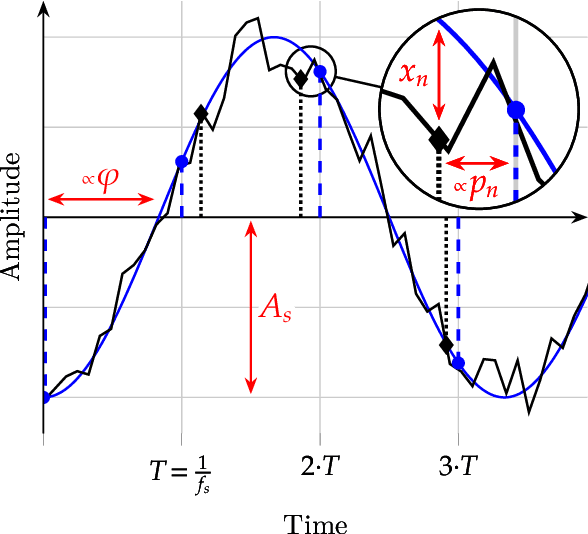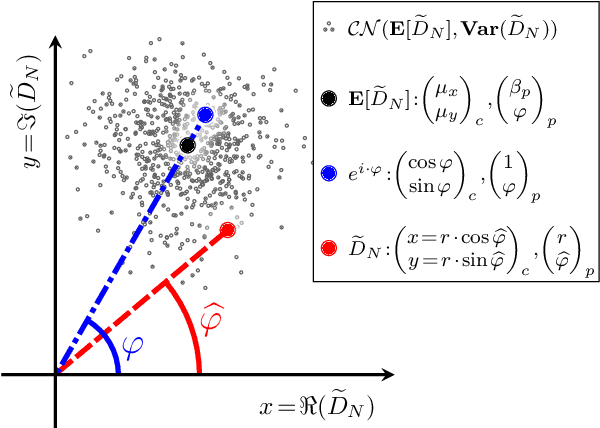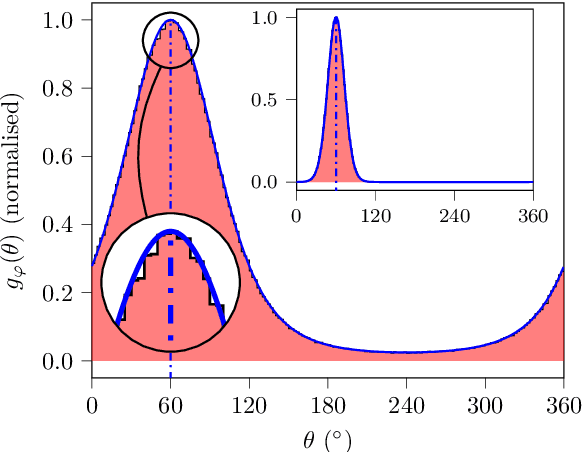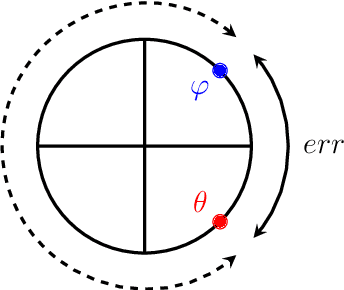On the Accuracy of Phase Extraction from a Known-Frequency Noisy Sinusoidal Signal
Paper and Code
Feb 07, 2024



Accurate phase extraction from sinusoidal signals is a crucial task in various signal processing applications. While prior research predominantly addresses the case of asynchronous sampling with unknown signal frequency, this study focuses on the more specific situation where synchronous sampling is possible, and the signal's frequency is known. In this framework, a comprehensive analysis of phase estimation accuracy in the presence of both additive and phase noises is presented. A closed-form expression for the asymptotic Probability Density Function (PDF) of the resulting phase estimator is presented, and validated by simulations that depict Root Mean Square Error (RMSE) trends in different noise scenarios. The latter estimator is asymptotically efficient, exhibiting fast convergence towards its Cram\'er-Rao Lower Bound (CRLB). Three distinct RMSE behaviours were identified depending on the Signal to Noise Ratio (SNR), sample count (N), and noise level: (i) saturation towards a random guess at low SNR values, (ii) linear decreasing relationship with the square roots of N and SNR at moderate noise levels, and (iii) saturation at high SNR towards a noise floor function of the phase noise level. By quantifying the impact of sample count, additive noise, and phase noise on phase estimation accuracy, this work provides valuable insights for designing systems that require precise phase extraction, such as phase-based fluorescence assays or system identification.
 Add to Chrome
Add to Chrome Add to Firefox
Add to Firefox Add to Edge
Add to Edge